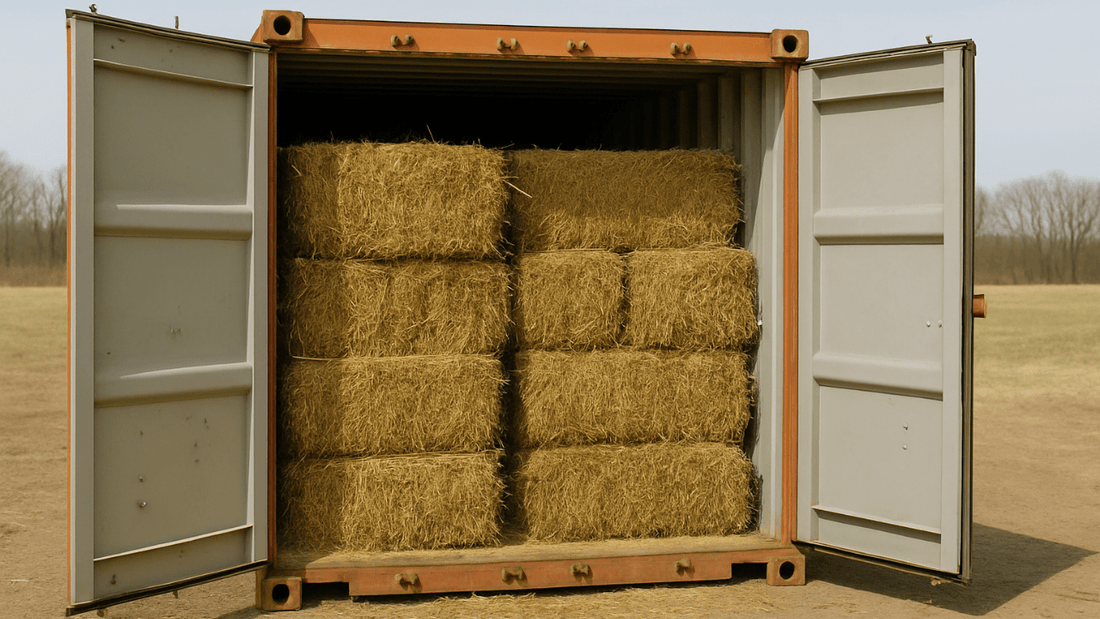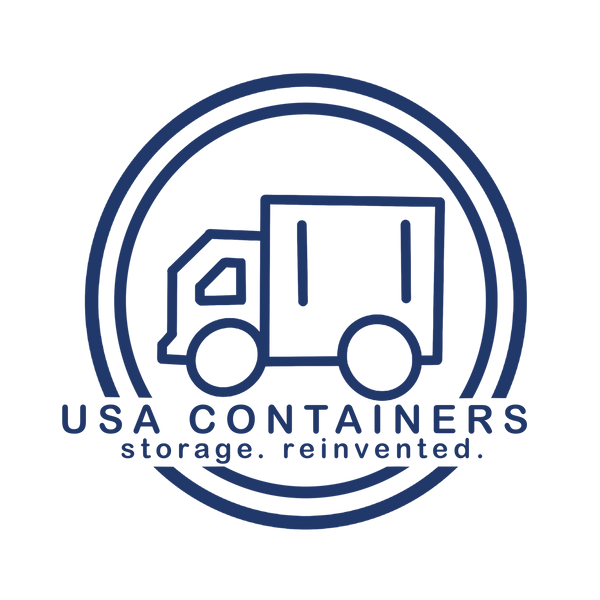
Innovative Ways to Use Shipping Containers on the Farm
Share
For farmers looking to expand their operations or streamline efficiency, shipping containers offer a cost-effective and highly adaptable solution. With proper planning and a few modifications, these containers can serve a variety of functions that enhance productivity, organization, and even profitability. Here’s a closer look at how shipping containers are being used to support modern farming operations.
1. Secure Equipment and Tool Storage
Farm equipment is a significant investment, and protecting it from the elements and theft is a top priority. Shipping containers provide a strong, weather-resistant structure for storing everything from hand tools and fencing supplies to ATV attachments and irrigation gear. Unlike traditional wooden sheds, they’re pest-resistant and far more secure.
Many farmers customize the interiors with shelving, bins, and workbenches to keep supplies organized and accessible. Adding roll-up doors or side access panels can also improve usability for larger items.
2. Feed and Seed Storage
Moisture and rodents can quickly ruin large quantities of feed or seed, leading to financial loss and operational setbacks. Used and new (one-trip) shipping containers from USA Containers are wind and watertight and rodent-proof. You can add additional insulation and ventilation if needed.
Some operations even segment containers internally to store multiple types of feed or seed efficiently in one central location.
3. Mobile Farm Stand or Retail Space
Direct-to-consumer sales continue to grow in popularity, and a shipping container can serve as a permanent or mobile farm stand. These structures are easy to modify with serving windows, awnings, signage, and interior shelving. They also lock securely at night, which adds peace of mind.
Whether set up near a roadside or moved to different markets, shipping container-based stands offer a professional appearance while remaining flexible and portable.
4. On-Farm Office or Administrative Hub
Even the most hands-on operations require a dedicated space for planning, record-keeping, and communication. Shipping containers can be insulated and finished to serve as quiet, functional office spaces right on the farm. With electricity, HVAC, and internet access, these offices are comfortable and efficient workspaces.
Some farmers also use shipping container offices to meet with vendors, conduct training, or coordinate seasonal labor efforts.
5. Livestock Shelters and Animal Housing
Shipping containers are increasingly being used to house animals, particularly in areas where weather conditions can be extreme. With basic modifications—such as windows, vents, interior framing, and proper flooring—they can be converted into barns, poultry coops, or kidding sheds.
Their durability offers excellent protection from wind, snow, and predators, and their modular nature makes them easy to expand or relocate as needed.
6. Hydroponic or Vertical Farming Units
For operations looking to diversify, repurposed shipping containers can support high-tech growing systems like hydroponics or vertical farming. These climate-controlled environments are ideal for growing leafy greens, herbs, or microgreens throughout the year, even in challenging climates.
LED grow lights, water filtration systems, and automated nutrient delivery can be installed to create a fully self-contained production unit with consistent yields.
7. Seasonal Worker Housing
During planting and harvest seasons, many farms bring in additional labor, and providing adequate housing can be a logistical challenge. Modified shipping containers can serve as temporary or semi-permanent living quarters, complete with sleeping areas, bathrooms, and kitchenettes.
Containers can be stacked or grouped to create compact housing units that meet code requirements while remaining easy to clean, relocate, or repurpose between seasons.
8. Biosecurity and Isolation Units
Maintaining strict biosecurity protocols is essential, particularly in livestock operations. Shipping containers can be converted into isolated quarantine units for sick animals, new arrivals, or contaminated equipment. These units are easy to disinfect and can be kept away from the main herd or production areas to prevent disease transmission.
This added layer of protection helps farmers maintain herd health and avoid costly outbreaks.
9. Rainwater Collection and Utility Enclosures
Shipping containers can also play a role in water and energy management. With a rainwater catchment system installed on the roof, they can help collect and store water for irrigation or livestock use. Inside, you can house water pumps, filtration systems, generators, or solar batteries in a weatherproof, tamper-resistant environment.
Shipping containers offer a practical, adaptable solution to many common challenges faced on today’s farms. Their strength, portability, and relatively low cost make them an ideal option for farmers seeking to add storage, workspace, shelter, or even housing without committing to permanent construction.
Before integrating containers into your operation, check local zoning regulations and building codes to ensure compliance. With a little planning and thoughtful design, a shipping container can become one of the most useful assets on your property.
Fill out the form below for a free shipping container quote from USA Containers:
